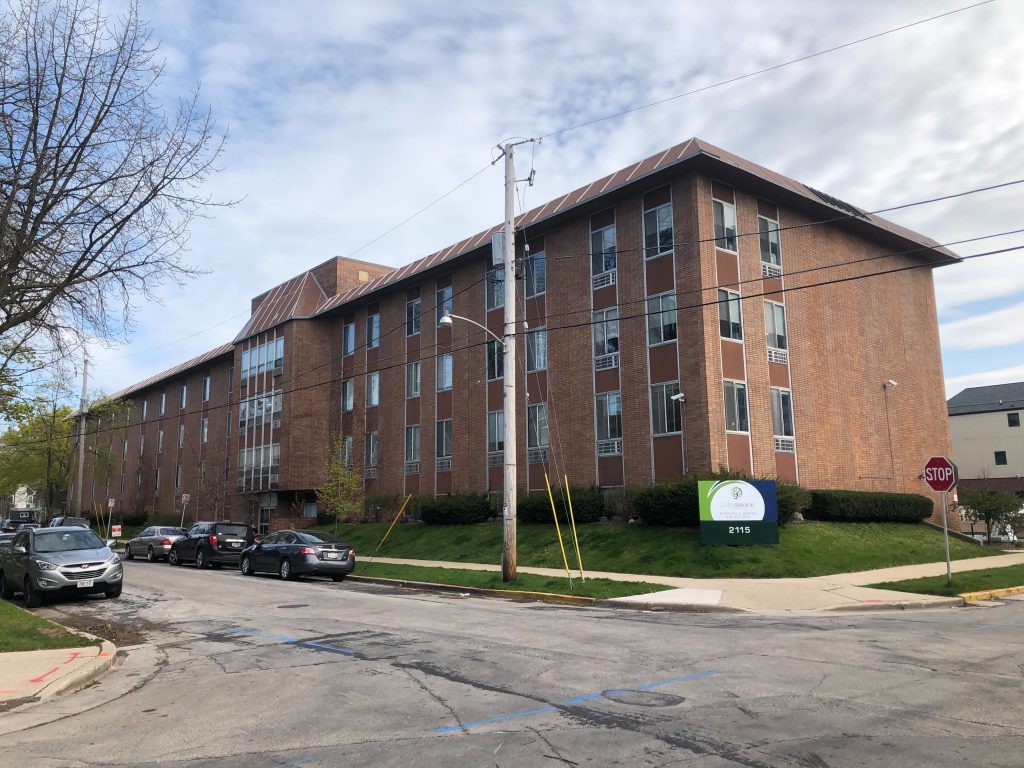Economist Urges $10 Minimum Wage
Professor says $15 too high, but state could take incremental steps.
The federal minimum wage hasn’t been increased since 2009, and while some advocates are still pushing for a $15 minimum wage despite recent efforts being stymied by the U.S. Senate, one economist is saying more modest increases are a better course of action in Wisconsin.
The rate has stayed consistent in the state with the federal minimum wage of $7.25 an hour. Workers earning minimum wage who work 2,000 hours a year — 40 hours for 50 weeks — make about $14,500 before taxes and work expenses.
Add a child or two into the mix, and there’s no way to support the family and get out of poverty, he said.
President Joe Biden and his administration have been vocal about their support for a $15 minimum wage, and have included it in a $1.9 trillion coronavirus relief package. But last week, the U.S. Senate opted not to allow a measure that would increase it, at least for now.
Opponents of the increase, which in some states is more than double the current rate, say raising wages that much would result in job losses and price increases in goods and services. Smeeding is an advocate for increasing the minimum wage, but not necessarily to $15 an hour. Instead, he suggests the state take a similar approach to Illinois and raise it incrementally each year.
“I don’t think the effects are going to be terribly great if we went to $10 or $11 an hour, for instance, in Wisconsin,” he said in a conversation with Kate Archer Kent on WPR’s “The Morning Show.”
The interview has been edited for brevity and clarity.
Kate Archer Kent: Start us out, Tim, if you will, with where we are now at $7.25 and explain how that was set.
Tim Smeeding: It got set in the Fair Minimum Wage Act of 2007, which increased the minimum wage in three steps to $7.25 by 2009. Now, that was 11 years ago. That’s a long time to have the minimum wage stay at the same level. And in terms of inflation-adjusted wages, it’s much lower now.
Now, 29 states and the District of Columbia and localities within states have a minimum wage that’s higher than the federal minimum, and 22 of these are at or above $10 an hour. Eight states are scheduled to move to $15 an hour over the next five and six years, including Florida.
At 5:30 Friday morning, the U.S. Senate passed a relief bill that did not include the $15 per hour minimum wage. We won’t have a national $15 minimum wage for a while, but there’s a lot of distance between $7.25 and $15.
It’s still possible that in the House, who gets the bill now could go for something like $12, which would make a huge difference in Wisconsin, for instance.
KAK: So the last time that $7.25 was on the horizon here was 2009, following another time of upheaval in our economy, the Great Recession. As you view our economy at this stage in the pandemic, why is this moment the right time to raise the federal minimum wage?
TS: Well, there is a lot of popular support for it. And I don’t see it as creating a lot of problems if we step into — over the next four or five years — something like $12 or $13 an hour.
I think that more people will want to go to work and more people will offer more work hours. And if it’s lower income people — 40 percent of minimum wage-earning people live in households that are poor or near poor, that’s going to mean we’re going to spend less on FoodShare, less on public housing, because as they earn more and they keep more — then the targeted program costs go down. I think that’s quite good.
KAK: What have you seen with the minimum wage in Wisconsin?
TS: Well, in Wisconsin, it’s really led to a shortage of workers in critical areas like elder care or in retail services and other areas. The closer you live to another community that’s paying a higher minimum wage, the more you’re going to have to pay.
Gov. Tony Evers made a proposal in 2019 to gradually raise the minimum wage to $10.50. It would have benefited a lot of workers and it never saw the light of day in the Legislature.
In 2014, the Congressional Budget Office said that if you raise the minimum wage to $10.25, a million people will lose their jobs but 30 million would get a pay increase. Last year, they said if you raise the minimum wage to $12 an hour, that fewer than one million would lose their jobs and 25 million would get a raise.
Minimum wage in Minnesota today is $10.08 an hour for large employers. In Minneapolis, it’s $13 an hour for large employers. In Illinois, it’s $11 an hour now and it’s going to go up to $15 by 2025. For people who are living in La Crosse and Kenosha (near the borders of Minnesota and Illinois, respectively), I know where they’re going to go to work and it’s not going to be in Wisconsin.
Listen to the WPR report here.
Economist Says Wisconsin Should Increase Minimum Wage To At Least $10 was originally published by Wisconsin Public Radio.























What a low bar! Adjusted for inflation the minimum wage should be 25$. What’s wrong is the trickle down slave economy.
Tim Smeeding ought to try living in $10/hr. All the people or politicians who oppose raising the minimum wage should try doing this, but that will never happen. I’m certainly not an economist, on the other hand it is completely disingenuous for others to determine the fate of others by so arbitrarily deciding what is and what is not enough for another person or family to live on who has no experience of what it is like to live on a less than subsistence wage.
A number of studies and reports challenge the insistence that we cannot dramatically increase the minimum wage
• The Counterintuitive Workings of the Minimum Wage. Ann Lowry writing in the Atlantic Monthly. The benefits of a $15 minimum would greatly outweigh the costs https://www.theatlantic.com/ideas/archive/2021/01/counterintuitive-workings-minimum-wage/617861/
• Why Lifting the Minimum Wage to $15 an Hour Won’t Cost 1.3 Million Jobs. Paul Ausick Writing in 24/7 Wall Street https://247wallst.com/jobs/2019/07/09/why-lifting-the-minimum-wage-to-15-an-hour-wont-cost-1-3-million-jobs/
Many more have appeared recently. And Treasury Nominee Yellen has been recently quoted as saying that job losses from $15 minimum wage would be ‘very minimal’
Let’s also remember other costs of the low wage/poverty economy that need to be taken into account like the increased health risks faced by low wage workers and their families, the public cost of safety net programs (read “subsidizing unsustainable poverty producing businesses”) to assist those trapped in low wage/poverty jobs (annual estimates range from $107 – $187 billion).
To get an idea of how inadequate wages are for many Milwaukee individuals and families, check out the MIT Living Wage Calculator. You can enter any county in the United States to learn what a living wage is. The data is broken out by family size and structure. Here’s Milwaukee County https://livingwage.mit.edu/counties/55079 Take a look at the figures for a single adult with three children (read “Female head of household”)
And let’s not overlook the renewed and long overdue calls for racial and economic justice. In a place like Milwaukee, the face of the low wage workforce is black and brown. We can’t begin to talk about equity with a low wage economy like ours. Increased wages are coming and our Milwaukee, the city that moves with all deliberate lethargy, is so not ready. What will it take?